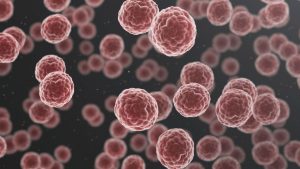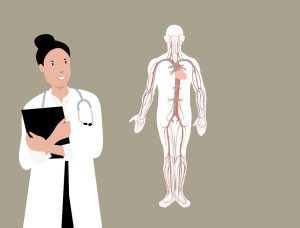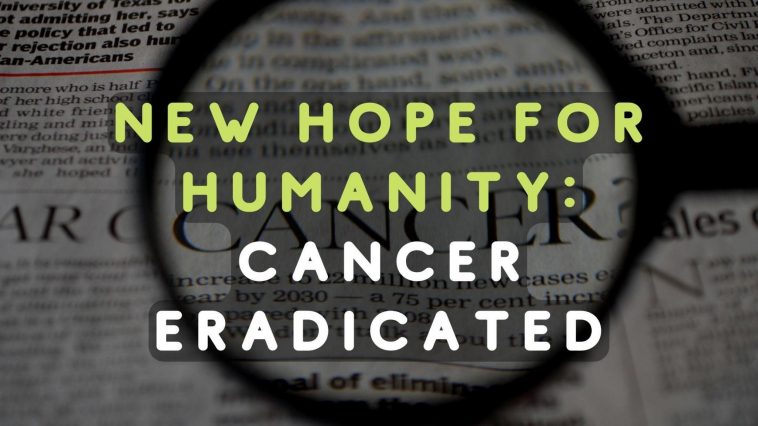What if you wake up one day and the first thing you read is cancer has been completely eradicated for the first time in human history. That would be a dream come true moment, right? Yeah, that’s what has happened today. We have new hope for all cancer patients around the world. Keep reading to find out. First of all, let’s understand Some basics of cancer.
What Is Cancer?

Cancer is a disease in which the body’s faulty cells develop uncontrollably. When the body’s natural regulation mechanisms fail, cancer develops. Instead of dying, old cells expand out of control, resulting in the formation of new, abnormal cells. These additional cells may create a tumor, which is a mass of tissue made up of abnormal cells. Leukemia, for example, does not produce tumors.
Is Cancer A Common Disease?
Although the overall rate of new cases has been steadily declining in the United States for decades, this does not suggest that cancer is now frequent. According to the National Cancer Institute, approximately 39.5 percent of men and women in the United States will be diagnosed with cancer at some point during their lives.
There are different types of cancers, and some are more common than others. They are
- Breast cancer
- Lung cancer
- Prostate cancer
While the overall cancer rate is declining, the rate of some tumors, such as melanoma, has risen in recent decades.
Now, let’s focus on the main topic why you clicked on this article. Let’s see if cancer can be cured?
Can Cancer Be Cured?
There are no cures for any type of cancer, but there are therapies that may help you live a longer and healthier life. Many people are diagnosed with cancer, survive for the rest of their lives, and then pass away from unrelated causes. Many others are treated for cancer but die as a result of it, despite the fact that treatment may extend their lives by years or decades.
Wait wait. Do you feel demotivated after reading that paragraph? Do you say to yourself, “I already know that cancer cannot be cured”? What you read above was true until recently, but everything changes with science. So is there any hope for cancer? Let me explain how.
What Are Some Cancer Treatments Up Until Now?
Many people are diagnosed with cancer, survive for the rest of their lives, and then pass away from unrelated causes. Many others are treated for cancer but die as a result of it, despite the fact that treatment may extend their lives by years or decades.
The following are examples of common cancer treatments:
- Surgery
- Palliative care
- Chemotherapy
- Trials in the clinic
- Radiation
- Drug therapy with a specific goal
- Transplantation of bone marrow
- Hormone therapy
- Immunotherapy
Treatment strategies are customized based on the type of cancer, its stage of progression, your overall health, and your personal preferences.
Is There Any Hope Of Finding A Cure For Cancer

The medication was given every three weeks for six months to study participants with mismatch repair-deficient stage II or III rectal cancer The treatment was supposed to be followed by normal chemotherapy and surgery, but patients who achieved a full clinical response were supposed to be able to skip those steps. All 12 patients had a full clinical response with no evidence of the tumor after at least six months of follow-up.
The research was published in the New England Journal of Medicine. There are 32 authors listed in the publication. Chemotherapy, radiation, and invasive surgery are all known to cause bowel, urinary, and sexual dysfunction in people with rectal cancer. The patients knew going into the trial that they would have to take these risks.
They were surprised to learn that after taking medicine, they didn’t need any additional treatment. This was “the first time this has happened in the history of cancer,” according to Dr Luis A. Diaz J. of Memorial Sloan Kettering Cancer Center, where the trial was performed. Are you shocked? Yes, we are too.
Dostarlimab, according to specialists, is a medicine made in a lab. In the human body, it works as a replacement for antibodies.
Dr Andrea Cercek, a co-author of the study and an oncologist at Memorial Sloan Kettering Cancer Center in New York, told CNN, “It’s what cancer physicians’ fantasies are made of.” “Dostarlimab works by releasing the body’s natural immune system to attack cancer,” she explained, explaining how the medicine used in the study works.

When we administer immunotherapy, such as dostarlimab, the immune system is stimulated, allowing it to recognize cancer and eliminate it,” she explained. “What’s surprising about this is that cancer was fully removed.” Tumors were simply gone.”
Physical exams, endoscopy, PET scans, and MRI scans were and are still unable to identify cancer in the patients’ bodies after the trial. Complete remission in every single patient in a trial, according to Dr Alan P. Venook, a colon cancer specialist at the University of California who was not involved in the study, is “unheard of.” He was also astonished that none of the patients had any clinically significant problems.
Dr Andrea Cercek, an oncologist, described the moment patients learned they were cancer-free as “a lot of happy tears.” The medication is promising, according to cancer researchers who studied it, but a larger-scale experiment is needed, according to the media site.
The Simon and Eve Colin Foundation, GlaxoSmithKline, Stand Up to Cancer, Swim Across America, and the National Cancer Institute of the National Institutes of Health all contributed to the medical trial’s success. Another interesting aspect of the study is that none of the individuals experienced any serious adverse effects. According to The New York Times, 3-5 percent of people taking checkpoint inhibitors (such as dostarlimab) experience serious side effects.
Dr Alan P. Venook, a colon cancer specialist at the University of California, San Francisco, who was not involved with the study, was quoted as saying that the lack of major side effects means “either they didn’t treat enough patients or, somehow, these diseases are just plain different.” The study’s primary completion date is set for November 30, 2023, according to its clinicaltrials.gov registration. The study will be finished on November 30, 2025, according to the estimates.
So we are finally having hope for a cancer cure. Let’s wait until 2023 and expect good news.



I’m impressed by your aptitude to turn mundane topics into riveting content. Well done!